The 2012 Nissan Leaf hatchback, the first all-electric car from a major manufacturer to be offered in the U.S. since GM's late lamented EV1 two-seater a decade ago, won't go on sale nationally for more than two years.
Nonetheless, Nissan is hoping to accumulate 20,000 U.S. advance orders for the car by the end of 2010, when it will introduce the car here. First deliveries will go to public utilities and other fleets, as well as up to 5,000 consumers in selected markets.
Those drivers must agree to allow data on how they use the car to be transmitted back to Nissan. The broader national sales launch of the Leaf will take place in late 2011.
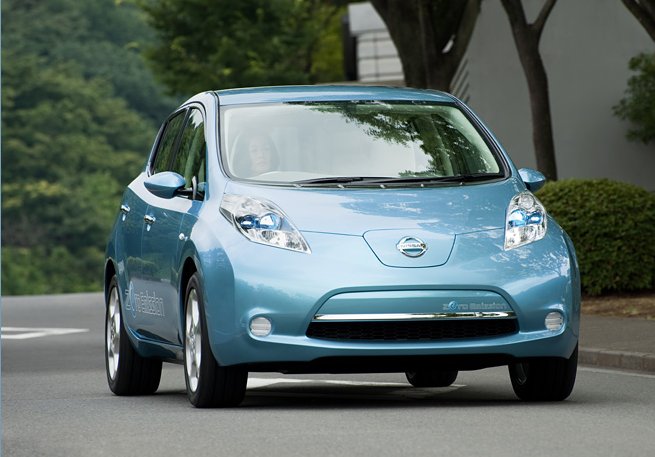
Nissan LEAF
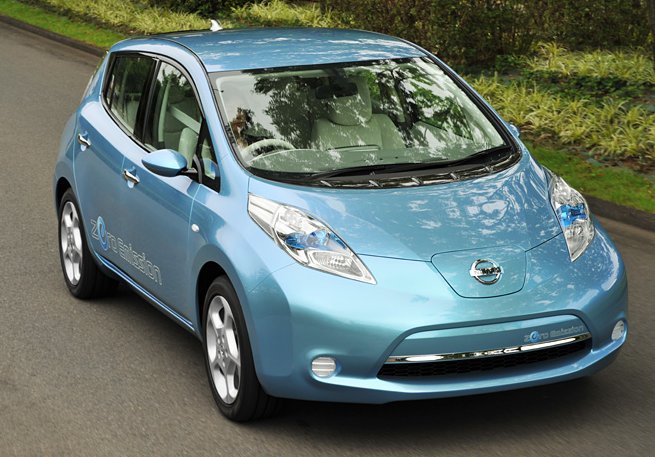
Nissan LEAF
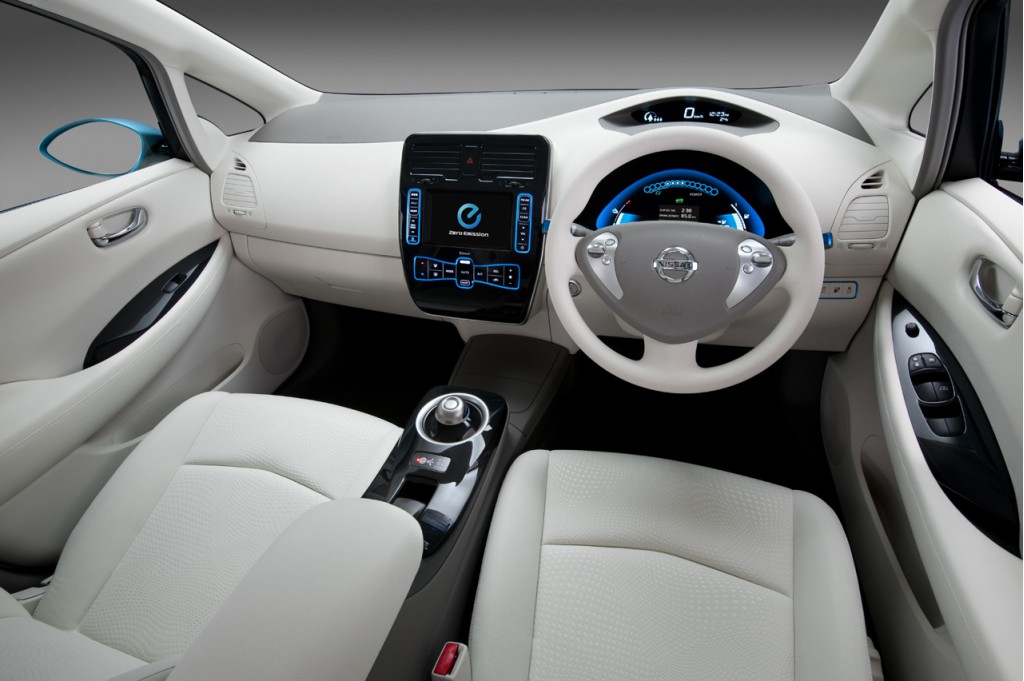
Nissan LEAF Interior
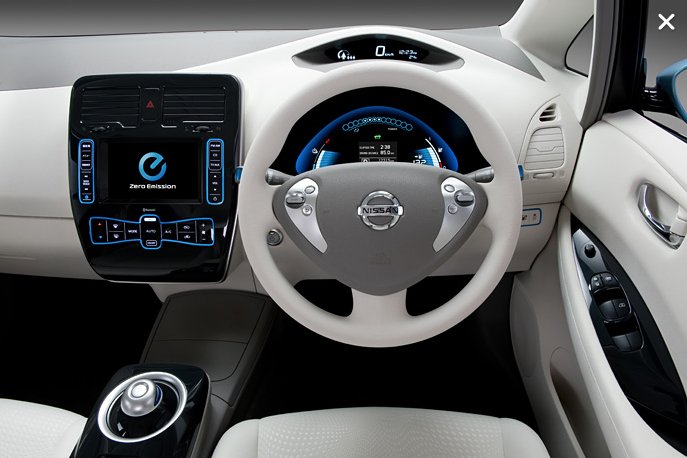
Nissan LEAF
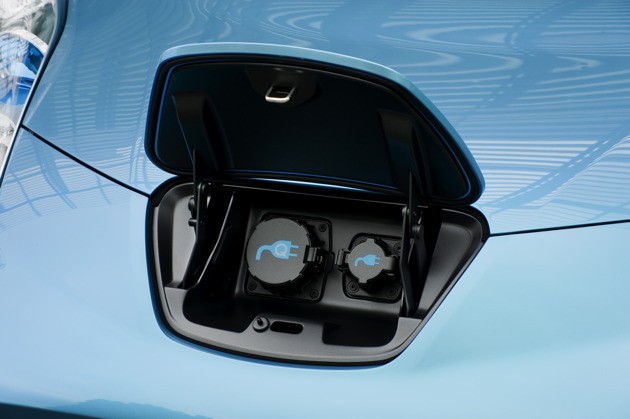
Nissan LEAF Charging Port

nissan leaf ev 002

Nissan LEAF
22,000 inquiries
The head of Nissan's operations in North, Central and South America, Carlos Tavares, said in a statement: "Our goal is to confirm at least 20,000 reservations for Nissan LEAF by the time we deliver the world's first mass-market zero-emission car in late 2010."
Already, Nissan says, 22,000 people have contacted the company since the Leaf was unveiled in August in Japan after an Internet teaser campaign. So Nissan has responded by opening a website where anyone can register to receive information about the 2012 Leaf over the next two years.
Opt in, answer questions
That site, Nissan Leaf Reservations, offers a variety of information and promotional material on the Leaf, its technology, and its impact on the environment.
Users who sign up to receive information and updates can also fill out a more detailed survey about their interest, their current cars, and their building type, including whether they have their own garage.
Not all regions created equal
Initially, distribution of the 2012 Nissan Leaf will be restricted. Nissan will begin late next year by leasing 5,000 of the cars to electric utilities and other fleets, as well as selling to a few carefully selected customers in certain markets. The goal is to get real-world usage data before the company offers the car more widely.
Large urban areas will receive the Leaf before more sparsely settled rural areas, for instance. Nissan already has agreements with electric utilities in Seattle, Portland, San Diego, Phoenix and Tucson, and Nashville (home of its U.S. headquarters).
Nissan plans a promotional tour for the Leaf that will start in Los Angeles this November. Its goal is to present the car to target buyers, and educate consumers about electric vehicles in general, even before it starts taking actual reservations.
Quick off the line
The 2012 Nissan Leaf is a five-seat hatchback with the footprint of a compact car like the Nissan Versa, but the interior space of a midsize vehicle like the 2010 Toyota Prius hybrid.
It has no engine at all, but claims a range of 100 miles from a full charge of its 24-kilowatt-hour lithium-ion battery pack. Power is delivered to the front wheels by an 80-kilowatt (108-horsepower) electric motor.
Like all electric cars, that motor develops its peak torque from 0 rpm, meaning that the Leaf will be fairly quick off the line. Note that the quoted torque of more than 200 foot-pounds is far higher than would be produced by a 108-horsepower gasoline engine.
We were impressed with our test drive of the 2012 Nissan Leaf powertrain, mounted in a different vehicle for testing purposes.
Pricing? The big unknown
Nissan had not released any pricing for the Leaf, but it is expected to offer the car for sale (perhaps at a base price around $25,000) but lease the battery pack separately. Driving on electricity costs far less--perhaps 3 cents per mile--than driving on gasoline, which runs from 6 to 30 cents a mile depending on the price of gas and the vehicle's fuel efficiency.
The lithium-ion battery pack uses cells from Automotive Electric Supply Corp., a joint venture between Nissan and NEC Corporation.
Japan, France, and...Tennessee
The same battery technology used in the Leaf will appear in a range of electric vehicles produced by Nissan's alliance partner, the French automaker Renault, which unveiled four electric concept vehicles at the recent Frankfurt Auto Show.
The first few years of Leaf vehicles will be built in Japan, at a Nissan plant in Oppama. Nissan has already been granted $1.6 billion of low-interest loans by the U.S. Department of Energy to retool a portion of its Smyrna, Tennessee, assembly plant to build as many as 150,000 Leafs a year, as well as creating a manufacturing facility for lithium-ion cells.
[Nissan press releases, Automotive News (requires subscription), Automotive News , WardsAuto]













